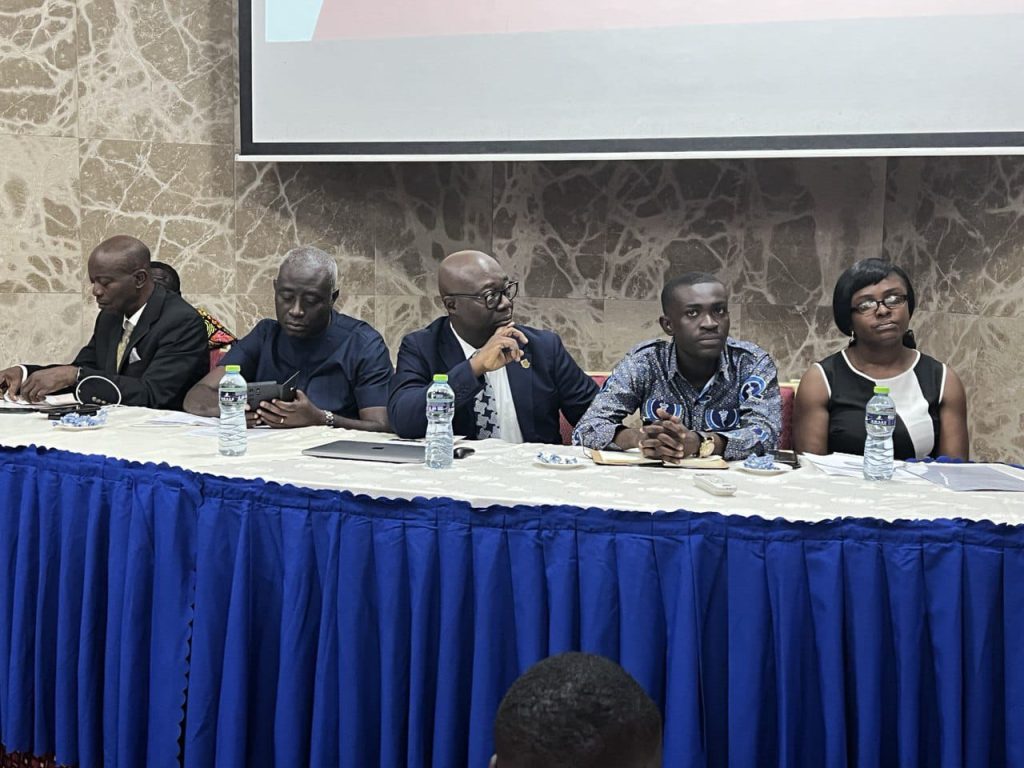Accra, Sept. 12, GNA – The College of Health Sciences (CHS) at the Kwame Nkrumah University of Science and Technology (KNUST) has established an Endowment Fund, targeting 10 million dollars in five years.
The Fund will promote the training of health professionals of high quality, conducting health research; especially investigating local diseases, providing scholarships for graduate and undergraduate training and procuring equipment.
It will also focus on creating opportunities to retain health science graduates to ameliorate some of the developmental challenges confronting the health sector of the country.
Professor Daniel Ansong, the Chairman of the Endowment Fund Board, speaking on behalf of the Prof. Christian Agyare, Provost of the College at the Media engagement, said the number of applicants had been increasing every year.
He said out of those applicants, most of them were qualified to receive a degree for which they applied but only a small number of qualified applicants got admitted.
He said of those admitted, the College still lost a few prospective students and there could be a myriad of reasons that could explain this.
The Dean said, for example, some of the admitted students picked up offers from other schools in the country, others also travelled outside because they did not get their programme of choice even though they qualified for such programmes.
He said their data showed that the College admitted lowest percentage of qualified applicants compared to all other colleges of the university.
He said this was mainly due to the lack of all the infrastructure required to train the people, who would take care of the nation’s health.
He said, for instance, the Medical and Dental Council, which regulated the training of doctors placed emphasis on facilities available to determine the quota that the College could admit into the Medical and Dental school.
Prof Ansong said the Pharmacy Council also regulated the quota of students, who could be admitted into the faculty and that other Allied Health Professional Councils might soon introduce quotas.
He said with the completion of the Boadi Medical village, the numbers admitted almost doubled from 2907 in 2019 to 4338 in 2020 and this revealed how expansion of infrastructure could increase intake.
The Dean said lack of adequate Basic science labs had been a major hindrance to reaching the potential of admitting and training more applicants (who will take care of the nation’s health).
“As a nation with a very high health worker-to-patient ratio, one will have thought that more health personnel would be trained to augment the shortfalls that have existed over the years,” he added.
However, he said, this had not been the case because of inadequate laboratory infrastructure and they had equipped labs but were inadequate for their students.
He said over the years, these capping had gradually resulted in maximizing our intake to match the demand for resources, shifting to admitting more fee-paying students than the regular (non-fee paying) students.
“A development that leaves the majority of the poor but qualified students behind the fence of health education,” he added.

He said if something was not done, the training of healthcare professionals would gradually be for the rich and “we may leave many people, who have hitherto been called to be healthcare professionals and have the requisite qualifications to be out for good.”
The Dean said with their experience in admissions, this would not only be detrimental to individuals but to the nation as far as the delivery of quality healthcare was concerned.
“We need to come out of this, that is why we are calling on all stakeholders, corporate Ghana, alumni, and parents to support this Endowment fund established by the college,” he added
The CHS comprises seven schools/faculties including KNUST School of Medical Sciences, Faculty of Pharmacy and Pharmaceutical Sciences, Faculty of Allied Health Sciences, School of Veterinary Medicine, School of Public Health, the School of Nursing and Midwifery, and the School of Dentistry.
Other research centres are the Kumasi Centre for Collaborative Research into Tropical Medicine and German-West African Centre for Global Health and Pandemic Prevention.
Mr Maxwell Opoku Agyemang, the Co-Chair of the Advisory Board, assured stakeholders of accountability and transparency in operating the Fund for the development of the College.
He urged the media to support the College in creating awareness on the Fund to continue to train more health professionals.
GNA